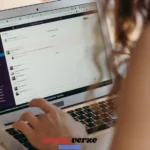“Master the art of navigating online slip-ups with the perfect ‘I Was Hacked’ excuse.”
We live in a world where social media blunders and controversial posts can spiral out of control in minutes. Whether it’s an embarrassing tweet, an offensive comment, or an awkward photo, these moments can tarnish reputations.
This is where the classic “I Was Hacked” excuse becomes the go-to shield against backlash. It’s a clever way to deflect responsibility while maintaining your reputation—if done right.
Want to dodge online accountability like a pro? This blog will guide you through the art of crafting the perfect “I Was Hacked” excuse. From believability to execution, you’ll learn how to navigate the storm without sinking your reputation.
Knowing the nuances of this excuse isn’t just about damage control—it’s a survival skill in the digital age. Let’s break down the strategies, techniques, and pitfalls so you can protect yourself and come out unscathed, every time.
Why “I Was Hacked” is the Perfect Excuse
The “I Was Hacked” excuse works so well because it shifts the blame onto an unseen force. It implies you are the victim of malicious activity rather than the perpetrator of an error or offense. This excuse taps into people’s empathy—who hasn’t heard of accounts being hacked before?
- “My account has been acting strange for days.”
- “I’ve contacted the platform’s support team to fix this.”
- “I never post things like this; it’s so unlike me.”
- “I’m embarrassed this happened, and I’m looking into it.”
- “It’s scary how easy it is to get hacked these days.”
- “If you received strange messages, please ignore them.”
- “I’m resetting my passwords immediately to prevent further issues.”
Setting the Stage for Believability
If you want your excuse to stick, you need to create a believable narrative. People are more likely to accept the hacking claim if it feels genuine. This starts with preparation and consistency in how you respond to the incident.

- Show concern: Express genuine worry about the “hacking.”
- Sound relatable: Mention common online security risks.
- Add urgency: Claim you’re taking immediate steps to resolve it.
- Be consistent: Stick to the same story across all platforms.
- Don’t overshare: Avoid unnecessary technical details.
- Mention others: Say friends flagged the issue first.
- Maintain calm: Appear collected rather than defensive.
Crafting Your Hacking Proclamation
Making your excuse convincing requires precision. Here’s what to avoid and what to do instead:
DON’T:
- Blame vague, unrealistic threats like “super hackers.”
- Over Explain technical jargon that sounds rehearsed.
- Contradict previous posts or messages.
DO:
- Use concise, neutral language that reflects concern.
- Mention routine actions like password resets or support requests.
- Keep your tone apologetic but assertive about your innocence.
Keys to Crafting Your Message:
- Timing is crucial: Respond quickly before the narrative gets away.
- Stay professional: Avoid sarcasm or defensiveness.
- Seek validation: Thank people for flagging the issue.
Funny and Inoffensive Ways to Decline Invitations
The Art of the Non-Apology Apology
A non-apology apology allows you to acknowledge the issue without fully accepting blame. This keeps you in the clear while appeasing your audience.
Example:
“I’m sorry for any confusion caused by this post. My account was hacked, and I’m working to resolve it.”
Doubling Down on the Deception
Sometimes, doubling down is necessary. If people start questioning your excuse, emphasize the threat or severity of the “hack.” This reinforces your victim narrative and discourages skepticism.
Tips for Doubling Down:
- Share screenshots of fake login attempts or phishing emails.
- Mention contacting cybersecurity experts for support.
- Claim you’ve reported the issue to authorities.
When to Pull the Plug
Sometimes, admitting defeat is better than dragging the excuse further. If you’re caught in inconsistencies or evidence proves otherwise, gracefully exit the narrative.
How to Pull the Plug:
- Apologize directly without excuses.
- Shift focus onto growth or learning from mistakes.
- Accept responsibility while remaining professional.
The Nuclear Option: Account Deletion
When all else fails, deleting your account can erase the issue entirely. This drastic step signals that you’ve “taken control” of the situation.
Options for Account Deletion:
- Temporarily disable the account until things cool down.
- Permanently delete the account to eliminate digital traces.
- Create a new account and start fresh with a clarified narrative.
The Moral of the Story
The “I Was Hacked” excuse can be a double-edged sword. While it’s a powerful tool for managing online slip-ups, it requires careful execution to maintain credibility. Use this tactic sparingly and wisely, always keeping integrity at the forefront.

Remember, honesty often wins in the long run. Crafting an excuse is no substitute for good digital habits and a commitment to responsible posting.
Prevention: The Best Medicine
Preventing a hacking incident—or the need for this excuse—is your best bet. Stay proactive about your online security and reduce the risk of mishaps.
- Use strong, unique passwords for every account.
- Enable two-factor authentication to add an extra layer of security.
- Avoid clicking suspicious links in emails or messages.
- Regularly update software to patch vulnerabilities.
- Monitor your accounts for unusual activity.
Remember:
- Prevention saves you from future headaches.
- A well-secured account never needs an excuse.
Key Insight
1. Can the “I Was Hacked” excuse always work?
It works when presented credibly and consistently. However, overuse or inconsistencies can damage trust.
2. How can I prove my account was hacked?
Provide screenshots of suspicious activity, login alerts, or support responses.
3. Should I apologize if I use this excuse?
Yes, offer a non-apology apology to show concern without accepting full blame.
4. Is deleting my account a good option?
Only as a last resort. It signals you’re taking control but may raise suspicion.
5. How can I prevent needing this excuse in the future?
Strengthen your online security with strong passwords, two-factor authentication, and vigilant monitoring.
Final Take
Navigating online missteps with the “I Was Hacked” excuse is a skill, but it’s not a license for dishonesty. While this tactic can diffuse immediate backlash, it’s not a long-term solution for careless digital behavior. Prioritize accountability and take preventive measures to secure your online presence.
When crafting your excuse, remember to remain authentic, consistent, and calm. People respond better to honesty—even in tricky situations. Strive to build trust, avoid unnecessary drama, and most importantly, learn from the experience to avoid repeating mistakes.

Hi! I’m Jane Austen, bringing you timeless quotes, heartfelt wishes, and a touch of wit from WishyVerze to add sparkle to your moments.












